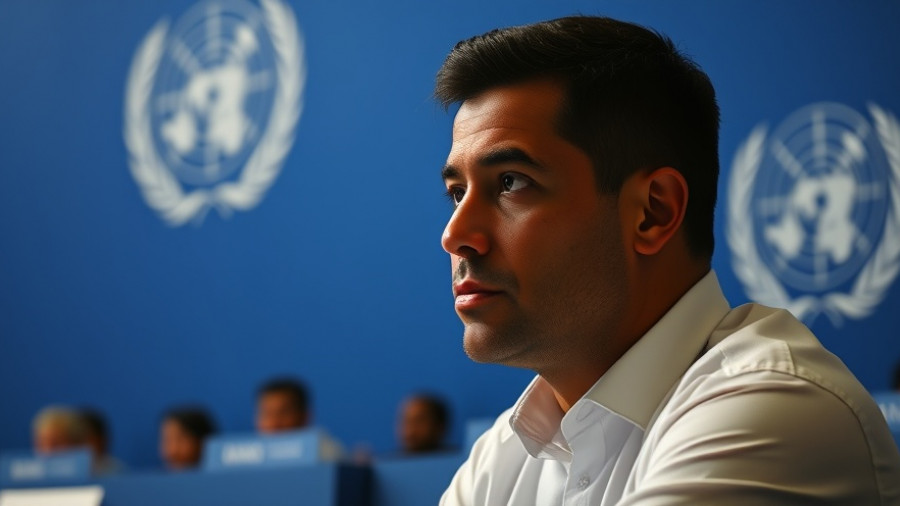
Trump Wages War on Colombian Narco-Terrorists Amid Controversy
In a recent escalation of tensions, former President Donald Trump has launched a fierce backlash against Colombian President Gustavo Petro after a U.S. military strike allegedly resulted in the death of a Colombian fisherman, raising significant concerns about foreign policy ethics and international sovereignty. The strike, part of a broader campaign against drug trafficking vessels in the Caribbean, has sparked a diplomatic feud between the two leaders, highlighting the complexities of American foreign policy in Latin America.
The Claims and Counterclaims
The backdrop to this dispute is a U.S. military operation that has reportedly targeted several vessels linked to drug trafficking, resulting in at least 32 deaths. Colombian authorities, including President Petro, vehemently dispute U.S. assertions that the vessels were involved in drug trafficking. Petro, in particular, has publicly condemned the strike that killed Alejandro Carranza, labeling him a fisherman rather than a drug trafficker and accusing the U.S. of murder and a violation of Colombian sovereignty.
In a series of social media posts, Petro stated, "The Colombian boat was adrift and had its distress signal up due to an engine failure. We await explanations from the US government." His accusations come at a time when the United States has limited evidence to substantiate claims linking these vessels to drug networks, instead relying on intelligence that has not been fully disclosed to the public.
Trump's Response: Calls for Tough Measures
Trump responded combatively, labeling Petro an "illegal drug trafficker" and threatening to cut all counter-narcotics aid to Colombia, crucial for the U.S. ally in the ongoing war against narcotics. As the stakes rise, Trump insisted that narco-terrorism represents a serious threat to American lives, emphasizing, "A boat loaded with enough drugs to kill 25 to 50 thousand people was stopped from entering American territory." His administration views these military strikes as a necessary measure in safeguarding American communities from the influx of illicit drugs.
Additionally, Trump announced during his tenure that the U.S. might expand military operations to Colombian soil should Petro fail to cooperate effectively in eliminating drug trafficking activities. He told Petro to "close these killing fields immediately, or the United States will close them up for him, and it won’t be done nicely." Such threats signal a departure from traditional diplomatic engagements to more aggressive military posturing, a strategy that some lawmakers are questioning.
Legality and Ethical Concerns Raised
The legal authority of these military strikes has been a focal point of criticism from both sides of the political spectrum. Critics, including Rep. Adam Smith, the top Democrat on the House Armed Services Committee, argue that the Trump administration has not provided sufficient transparency regarding the legality and justification for these actions. “They have failed to demonstrate the legality of these strikes, provide transparency on the process used or even a list of cartels that have been designated as terrorist organizations,” Smith stated.
This situation highlights a growing concern over the balance of military action and congressional oversight. The recent strikes, which have been described by the Pentagon as targeted efforts against recognized narco-terrorists, bring into question how the U.S. government defines imminent threats and its definition of terrorism in this context.
The Broader Implications for U.S.-Colombian Relations
This dispute between Trump and Petro not only endangers U.S.-Colombian relations but also signals a potential shift in how the U.S. engages with Latin American countries on drug-related issues. The increasing militarization of U.S. foreign policy in this region is at odds with ongoing diplomatic efforts and risks alienating key allies in the fight against drug cartels.
Moreover, in recent weeks, Trump has indicated that the U.S. might consider strikes on land against these networks, potentially expanding military engagement beyond maritime operations. This shift raises further questions about the legality, objectives, and moral implications of American military involvement in foreign nations.
Conclusion: Navigating the Waters of Foreign Policy
As this unfolding story continues to develop, the challenges presented by the complex interplay of drug trafficking, U.S. foreign policy, and international relations will need careful navigation. The outcome of this dispute could reshape how international partnerships approach the drug crisis and influence broader geopolitical dynamics in the Americas.
Given the escalating tensions, stay informed about ongoing updates related to U.S.-Colombia relations and their implications for both nations' futures. Understanding these dynamics is key for anyone interested in current events and international politics.
 Add Element
Add Element  Add Row
Add Row 



Write A Comment